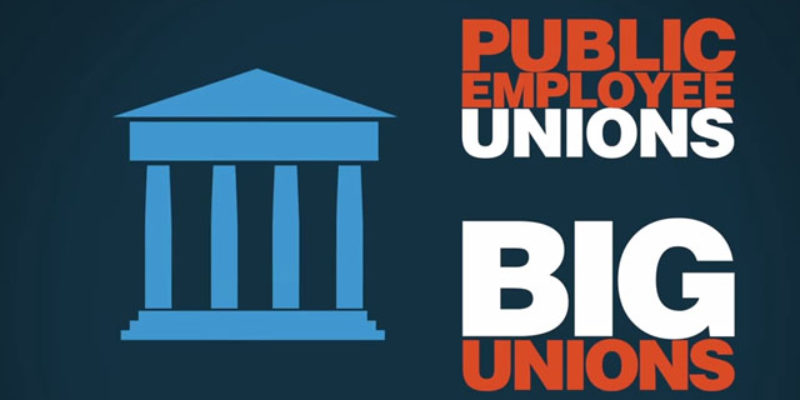Government employees have been abandoning their unions since the Janus U.S. Supreme Court decision last year. The Janus decision ruled that government employee unions could not be force non-members to pay partial dues.
From Reason:
Given the choice of no longer paying to support unions they didn’t want to join in the first place, lots of public sector workers took it.
Two of the largest public sector unions in the country lost more than 210,000 so-called “agency fee members” in the wake of last year’s Supreme Court ruling that said unions could no longer force non-members to pay partial dues. That case, Janus v. American Federation of State, County and Municipal Employees, effectively freed public workers from having to make “fair share” payments—usually totaling about 70 to 80 percent of full union dues—in lieu of joining a union as a full-fledged member.
Now, annual reports filed with the federal Department of Labor show that the American Federation of State, County and Municipal Employees (AFSCME) lost 98 percent of it’s agency fee-paying members during the past year. Another large public sector union, the Service Employees International Union (SEIU), lost 94 percent of their agency fee-paying members.
Even though unions were preparing for a mass exodus in the wake of the Janus ruling, the numbers are staggering. In 2017, AFSCME reported having 112,233 agency fee payers (compared to 1.3 million dues-paying members), but that figure dropped to just 2,215 in the union’s 2018 report. The SEIU reported having 104,501 agency fee-payers in 2017 (compared to 1,919,358 dues-paying members), but just 5,812 of them at the end of 2018.
The loss of these mandatory fees has hurt the bottom line of government employees’ unions. AFSCME is reporting a $4.2 million drop in revenue in 2018 compared to 2017. But the good news for the government employees’ unions is that those who chose to be members have largely stuck with the unions.
Advertisement
Not only is this a win for workers, but this could also be a long-term win for reformers. One of the biggest opponents of civil service and other reforms are the government employee unions. With them weakened, it could become easier for reform legislation to move through legislatures and Congress.
Advertisement
Advertisement

